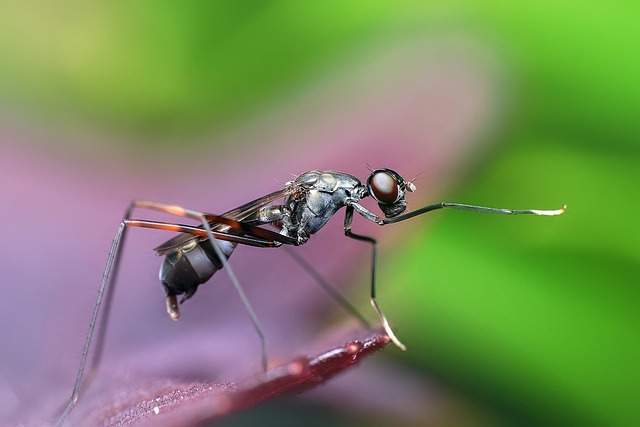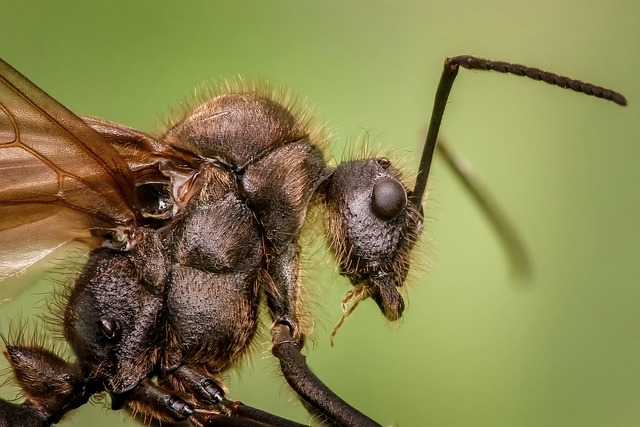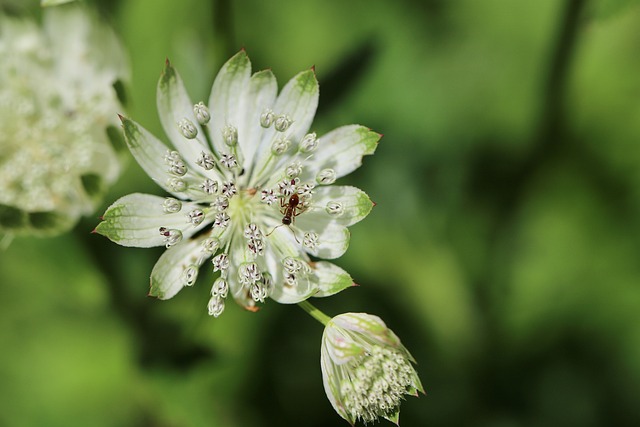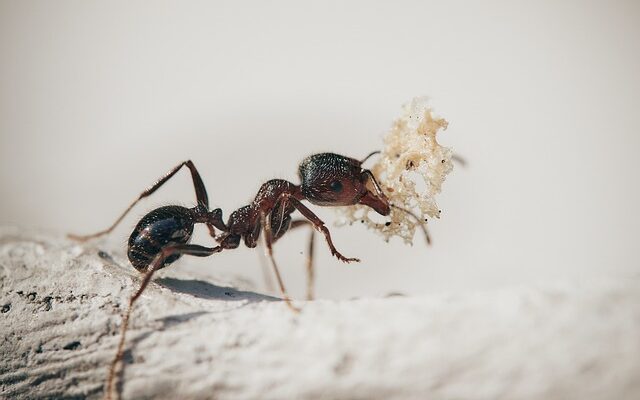Understanding the presence of ants in your closet
Understanding the Presence of Ants in Your Closet: A Complete Guide
If you’ve noticed tiny ants marching their way into your closet, you might be wondering why these pesky insects have invaded your sanctuary. In this comprehensive guide, we will explore the reasons behind the presence of ants in your closet and provide practical solutions to eliminate them.
One primary reason ants find their way into your closet is the accessibility to food sources. Crumbs, spills, or improperly sealed food containers can attract ants and serve as a steady food supply. Often, they can find shelter and moisture within the closet, further enticing them to stay and build their nests.
Another factor to consider is the presence of moisture in your closet. Leaky pipes or excessive humidity can create a conducive environment for ants. They are attracted to moist areas as it provides them with the necessary hydration for survival.
Ants are also known for their ability to trail and follow scent trails established by other ants. If they have identified a food source or nesting area within your closet, they will continue to return and recruit more colony members to join them.
To get rid of ants in your closet, start by thoroughly cleaning the space, removing any food debris, and ensuring all food containers are sealed tightly. Fixing any leaks or reducing humidity levels can help deter ants from entering your closet.
Using natural ant repellents such as vinegar, lemon juice, or essential oils known to repel ants can also be effective. Additionally, sealing cracks and crevices around the closet and restricting their entry points can prevent future infestations.
In conclusion, understanding why ants invade your closet is vital for effective eradication. By addressing potential food sources, moisture issues, and sealing entry points, you can reclaim your closet as an ant-free zone. Implement these solutions and bid farewell to unwanted ant intruders once and for all.

Factors attracting ants to your closet
Factors attracting ants to your closet can be attributed to several reasons. Understanding these factors can help you ensure better ant control and prevention in your home. Here are a few common factors that may be drawing ants to your closet.
1. Food sources: Spilled food crumbs, sticky residues, or even leftover snacks can lure ants into your closet. They have a keen sense of smell and are attracted to any accessible food sources.
2. Moisture: Ants are attracted to moisture-rich environments. If your closet has damp walls, leaks, or high humidity levels, it may entice ants to seek shelter and build colonies.
3. Scent trails: Ants are known to leave scent trails, which they follow and communicate with each other. If there is an existing ant trail leading to your closet or food source, more ants will be attracted to the scent and continue to invade your space.
4. Cracks and crevices: Small cracks or openings in your closet provide easy access for ants to enter and establish their colonies. They can squeeze through even the tiniest of gaps, making it crucial to seal off any entry points.
5. Natural fibers: Some species of ants are attracted to natural fibers like cotton or linen. If your closet contains clothing or materials made from these fibers, it may act as a magnet for ants.
6. Dark and secluded spaces: Closets, especially those that are rarely accessed, provide ants with ideal hiding spots to build their nests undisturbed. The tranquil and secure environment makes it a desirable location for ant infestations.
To prevent ants from infiltrating your closet, it is essential to keep it clean and free of food debris. Regularly inspect and seal any cracks or openings, while maintaining proper ventilation to reduce moisture levels. If you suspect an ant infestation, consult a professional pest control service to identify the species and implement appropriate measures for eradication. By addressing these factors, you can ensure a pest-free and well-maintained closet.

Common queries about ants in closets
, Use clear and concise language, Include relevant keywords such as “ants in closets,” “common ant problems,” “preventing ants in closets,” “ant control methods,” “home pest infestations,” and “closet cleaning tips.” Additionally, consider addressing the common concerns and questions that people may have about ants in closets, such as why ants are attracted to closets, the potential risks of an ant infestation, and how to effectively remove ants from closets.
Title: Common Queries About Ants in Closets – Prevention and Control Methods
Meta Description: Discover useful strategies to prevent ants in your closets and effectively eliminate ant infestations. Learn about the risks associated with ants in closets and find tips for maintaining a clean and pest-free home.
Introduction:
Ants can be a persistent and unwanted presence in our homes, and finding these tiny creatures invading our closets can be particularly frustrating. If you’ve noticed ants in your closets or are concerned about a potential infestation, this article will address some common queries and provide practical solutions.
Why are ants attracted to closets?
Ants are naturally attracted to food sources, moisture, and shelter. Closets offer all three of these essentials, making them an ideal target for ant colonies seeking refuge and sustenance. Food particles, pet treats, spills, or even damp clothing can lure ants into closets.
What is the risk of an ant infestation in closets?
Aside from being a nuisance, ants in closets can contaminate your clothing, stored items, and even your food supply. Some ant species, such as carpenter ants, might also cause damage to the wooden structures within your home.
How can I prevent ants in my closets?
To prevent ants from infesting your closets, start by keeping them clean and organized. Regularly wipe down shelves and vacuum the floors to remove any food debris or crumbs. Store food in airtight containers, seal pet food bags, and promptly clean any spills. Additionally, ensure that your home’s exterior is well-maintained, with no cracks or gaps that could serve as entry points for ants.
How can I eliminate ants from my closets?
If you already have an ant infestation in your closets, various methods can help you get rid of them. Non-toxic options like spraying vinegar or applying diatomaceous earth are often effective. Additionally, ant baits can be strategically placed near ant trails or around closets to attract and poison the colony. Seeking professional pest control services may be necessary for severe infestations.
Conclusion:
Ants in closets can be a source of annoyance and potential damage to your belongings. By implementing preventive measures and employing effective ant control methods, you can successfully eliminate ant infestations and maintain a clean and ant-free closet. Regular cleaning, proper food storage, and routine home maintenance are key to preventing ants from invading your closets and ensure a pest-free living environment.

Tips to eliminate ants and prevent future infestations
Title: Tips to Get Rid of Ants and Prevent Future Infestations: Effective Ways to Keep Your Home Ant-Free
Meta Title: Expert Tips for Ant Removal and Prevention: Your Guide to an Ant-Free Home
Meta Description: Discover effective strategies for eliminating ants and preventing recurring infestations. Follow these expert-approved tips to keep your home ant-free for good.
Introduction:
Are pesky ants invading your space? Don’t fret! With these expert tips, you can eradicate ants from your home and prevent future infestations. Follow this comprehensive guide to ensure a long-lasting solution to your ant problem.
1. Identify the Ant Species:
Knowing the type of ant you’re dealing with aids in customizing appropriate eradication techniques. Diagnose common ant species, such as sugar ants, carpenter ants, or fire ants, to employ targeted control methods effectively.
2. Eliminate Food Sources:
Maintain a clean and crumb-free environment. Regularly sweep and mop floors, wipe down countertops, and store food in airtight containers. Additionally, fix leaky faucets and promptly clean up spills to remove water sources.
3. Seal Entry Points:
Block ant access by sealing cracks and crevices around windows, doors, and pipe openings. Use caulk or weather stripping to secure any potential entry points, effectively preventing future infestations.
4. Natural Repellents:
Experiment with natural ant repellents near entry points to discourage them from entering. These may include essential oils like peppermint, cinnamon, or lemon, which ants find repulsive.
5. Use Ant Baits:
Place ant baits near areas heavily frequented by ants. Opt for baits that contain slow-acting insecticides, allowing ants to transport the poison back to their colonies, effectively eliminating entire ant colonies.
6. Keep Outdoor Spaces Clean:
Maintain your yard by trimming plants away from the house and eliminating standing water sources. This discourages ants from establishing colonies near your home.
7. Regular Cleaning and Inspections:
Perform routine cleaning and inspections to catch any signs of an ant infestation early on. Regularly check cabinets, pantries, and dark corners for ant trails, eggs, or damage.
By implementing these comprehensive tips, you can eliminate ants from your home and prevent future infestations. With patience and persistence, you’ll enjoy an ant-free environment, providing peace of mind and a clean living space.

When to consult an exterminator for severe ant problems
When faced with severe ant infestations, it is crucial to consult an exterminator for effective and long-lasting solutions. Ants may seem harmless on their own, but when their population grows, they can become a significant nuisance and threat to our homes and health. Ants can contaminate food, cause structural damage, and can even bite or sting.
One of the main reasons to consult an exterminator is the inability to control the ant population through DIY methods. While store-bought sprays and traps might work for minor ant problems, severe infestations require professional expertise. Exterminators have extensive knowledge of ant behavior and appropriate treatment options that can eradicate the infestation from its source. They can assess the severity of the problem, identify the ant species, and determine the best course of action to eliminate the infestation effectively.
Severe ant problems may also manifest in unusual or difficult-to-reach areas. It could be a hidden nest inside walls, under floorboards, or even within electrical wirings. In such cases, the expertise and tools of an exterminator are indispensable. They possess specialized equipment and techniques to locate and treat these hidden nests, ensuring complete eradication of the infestation.
Additionally, certain ant species pose specific risks and require professional handling. For instance, fire ants can deliver painful stings that can cause allergic reactions, while carpenter ants can cause structural damage by tunneling through wood. Exterminators are trained to handle these dangerous situations safely, minimizing health risks and preventing further damage.
In conclusion, when faced with severe ant problems that DIY methods cannot resolve, consulting an exterminator is essential. By doing so, you can ensure the complete elimination of the infestation, safeguard your health, and protect your home from the destructive nature of these persistent pests.

